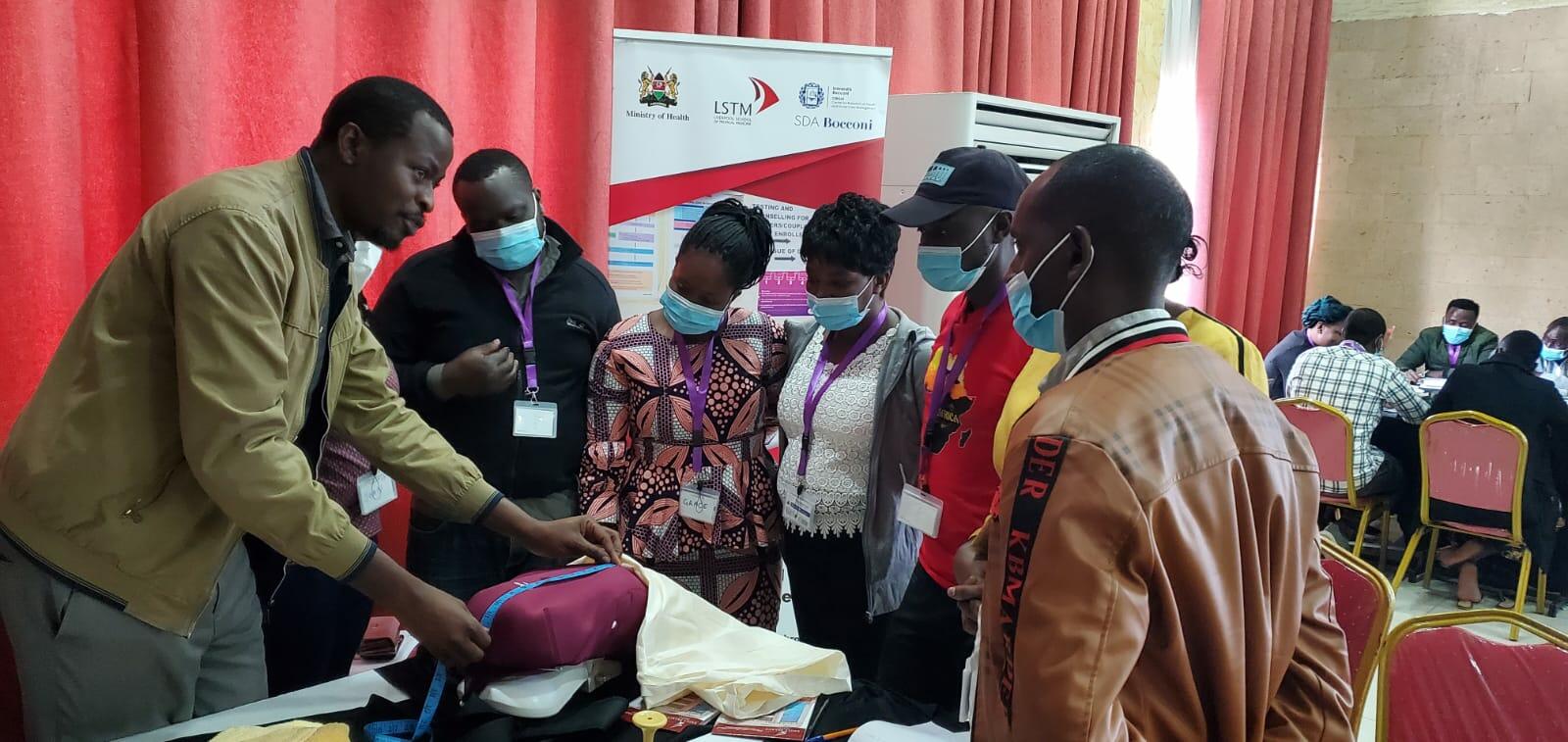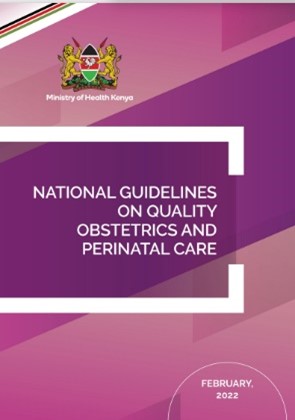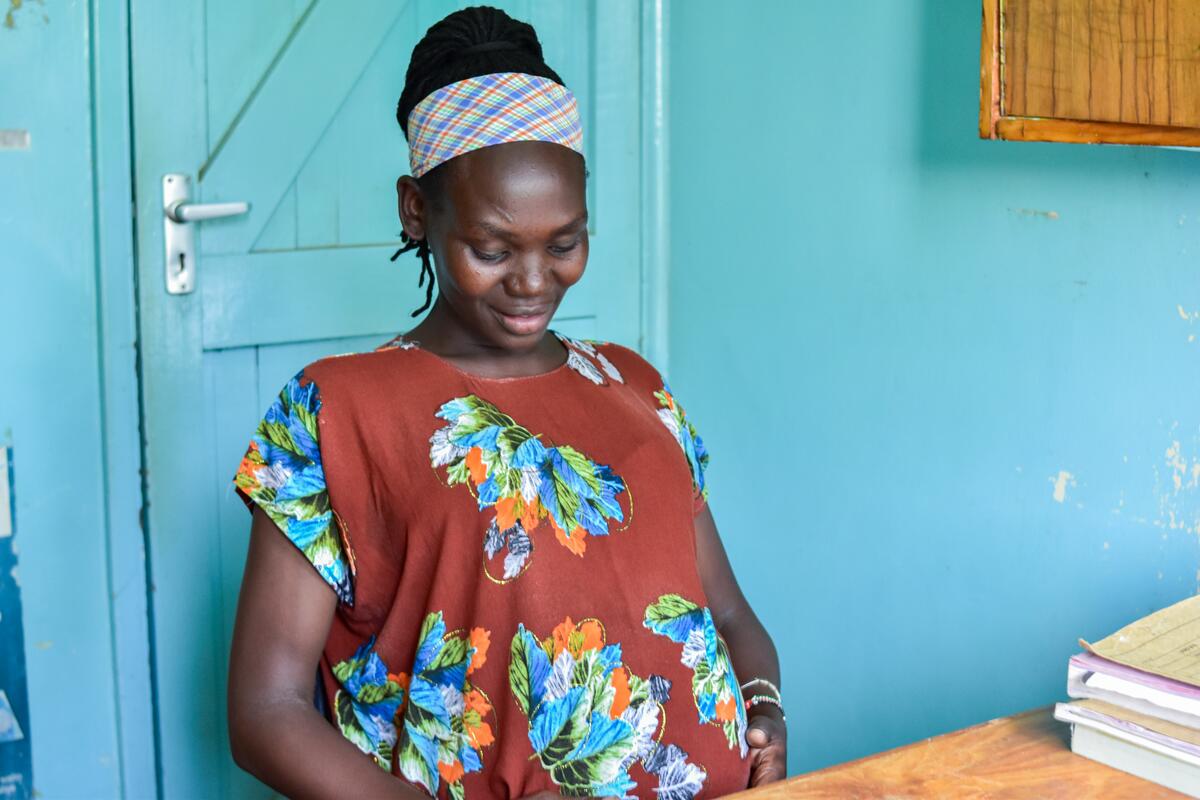
Perspectives from Uasin Gishu County in Kenya
Authors
Irene Nyaoke, Senior Technical Officer - Liverpool School of Tropical Medicine (LSTM) Kenya
Rael Mutai, Regional Technical Advisor- Liverpool School of Tropical Medicine (LSTM) Kenya
Lucy Nyaga, Country Director – Liverpool School of Tropical Medicine (LSTM) Kenya
Fiona Dickinson, Postdoc Research Associate- Liverpool School of Tropical Medicine (LSTM) United Kingdom
Helen Allot –Technical Specialist - Liverpool School of Tropical Medicine (LSTM) United Kingdom
Charles Ameh, Professor Global Health, Head, Emergency Obstetric and Quality of Care Unit, Liverpool School of Tropical Medicine (LSTM) United Kingdom.

Timely and appropriate, quality antenatal care (ANC) can save the lives of both mothers and babies. In 2016, the World Health Organization (antenatal care for positive pregnancy experience) announced a change in the recommended number of contacts a pregnant woman should have with her health care provider, from four to eight contacts, throughout her pregnancy. At the time, only 6 in 10 women in Kenya received four or more ANC visits, and only 20% had their first ANC visit in first trimester (KDHS 2014). The policy change highlights new evidence that 8 or more antenatal care contacts could reduce perinatal deaths by up to 8 per 1000 births and therefore provide a positive pregnancy experience for the mother and baby. In 2022, the Kenya Ministry of Health launched new guidelines on quality obstetrics and perinatal care in which the WHO ANC model of 8 contacts was adopted. Not forgetting that health facilities in Kenya experience staff shortages, low staff retention, and difficulty in attaining equitable distribution of health care providres especially in hard-to-reach areas. The challenge was and remains that if only 60% of the mothers can manage to attend four ANC visits throughout the pregnancy, how then will it be possible to persuade mothers to attain 8 or more ANC contacts. According to a multi-country study, the pooled prevalence of eight or more ANC contacts was 13.0% in the 15 studied countries (2021).
The Liverpool School of Tropical Medicine (Kenya), in collaboration with National Ministry of Health (MoH) and county health departments of Garissa, Uasin Gishu and Vihiga, is implementing a Quality Improvement (QI) programme concerning integrated Antenatal and Postnatal care. The programme, supported by The Global Fund, is training frontline health care providers (target 630) across 61 health facilities in Kenya. The training focuses on evidence-based screening, therapeutic interventions, and health promotion during and after pregnancy.
Florence, the Nurse-in charge of the Maternity unit in Mois Bridge Health center (Uasin Gishu), was trained by LSTM and said:
“Yes, before the training, we used to implement 4 antenatal care visits but now we conduct 8 ANC contacts as per the National Ministry of Health guidelines.”
When she returned from the training, she briefed her team working in the Maternal and Newborn Unit and they have since adopted a strategy to achieve this target.
“When we go out for the MCH community outreach, we sensitize the community on the importance of seeking antenatal care at the health facility immediately a woman conceives. We also disseminate this information during the daily health education talks to mothers at the health facility, and they are coming”.
Other strategies being employed to advance adherence to this standard of attaining 8 or more contacts, include utilising the community health networks and other maternal and newborn health (MNH) clinics to reach the mothers. For instance, in Kapseret Subcounty, Community Health Volunteers (CHVs) have been sensitised on early detection of pregnancy and referral of mothers for antenatal care. Once they come across a woman who has missed a period, they encourage her to come to the health facility for pregnancy confirmation and thus to the first ANC contact.

During an exit interview by LSTM with this pregnant mother after her ANC visit, she confirmed that one of the reasons she continues to come for her visits as scheduled, is because the services in the facility are free of charge and the midwife is kind to her.
Treating mothers with respect and the preservation of their dignity is one of the Kenya MoH Quality standards in MNH that is taught at the QI trainings by LSTM.
“Yes, it is possible. If mothers come early in pregnancy, they can manage the 8 and more contacts. For example, during family planning clinics, when a woman comes to have her implant removed for desire to conceive, she is provided with preconception care and advised that when she misses a period, she should return to the facility for pregnancy confirmation and start ANC. That way, mothers start early and attain 8 contacts and more”.
Sally, Subcounty Reproductive Health Coordinator for Kapseret Subcounty in Uasin Gishu, Kenya.
In view of the WHO recommendation, it is critical that the government and other stakeholders in the healthcare delivery system improve the availability, efficiency, cost, and communication about skilled pregnancy care.
While the current statistics on adherence to the WHO’s recommendation of 8 or more antenatal contacts are underwhelming in most Low and Middle-income countries (LMICs), LSTM, through its partners and in collaboration with Kenya National Ministry of Health and county health departments, is committed to ensuring quality, life-saving care for all mothers and newborns. By building competencies of the frontline healthcare workers to provide quality healthcare, the gap between coverage for essential MNH services and MNH Outcomes is narrowing, and transformation is evident.